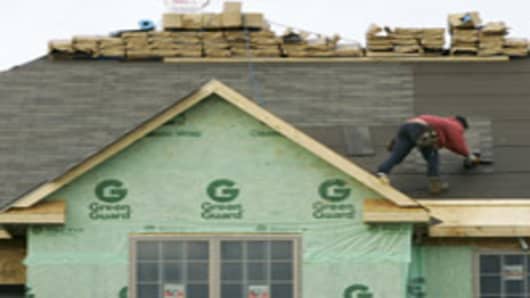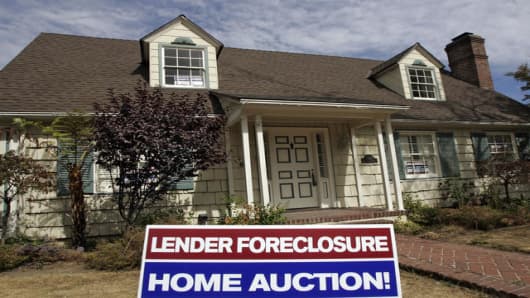Pop quiz. You’ve just inherited a chunk of change or landed a hefty bonus and you’re ready to add a little real estate exposure to your equity-heavy portfolio.
Where should you park your dollars, in light of market uncertainty, for the biggest potential return on your investment?
The answer, said Andrew J. McLean, a licensed Realtor in Biloxi, Miss. and author of “Investing in Real Estate”, depends on your appetite for risk, financial goals and the degree to which you intend to take an active role in managing your newest asset.
“You can absolutely do well with real estate in any market,” he said. “Real estate is cyclical and we’re in a down cycle right now, but it’ll be back and strong again by next year in most parts of the country. Investors just have to be patient.”
Indeed, the days of flipping houses for a 30 percent markup may be over. And there are some who argue that buying a house now, in certain markets, is a move certain to lose money. But others think the current market correction also spells opportunity for bargain hunters who are willing to wager on the long-term health of residential and commercial real estate.
Rental Properties
According to McLean, single-family homes continue to offer the greatest upside potential for average investors.
“I don’t recommend apartment rentals, condos or even townhouse, because they’re harder to sell, association fees are constantly rising and you don’t get any land,” he said. “That’s what appreciates more than anything else.”
His strategy for building wealth? Purchase a fixer-upper, live in it while you renovate and rent it out when you’re ready to move on. Repeat.
“If you put your house on the rental market in good condition you’ll have tenants coming to you,” he said. “You can then move on to another property and fix that up for future rental, producing revenue streams.”
The National Association of Realtors reports the sale of investment property, which includes single-family rentals, fell almost 29 percent last year over 2005, the most recent years for which data are available. (More:Determining Buying Leverage)
“Activity is still strong, but it’s down sharply from an unsustainable pace,” said NAR spokesman Walter Molony. “I would say that drop is healthy in that it represents a disappearance of speculators or flippers, which is what you don’t want to see active in the market because they drive up prices.”
Investors buying rental property today, said McLean, should look for those with adequate land to accommodate future improvements, such as a new addition or guesthouse down the road.
A good school district is equally critical, as is the age of the house.
David Wyss, chief economist at Standard & Poor’s, adds investors who purchase rental property should limit their search area to nearby towns.
“Buy what you know and buy close to your home so you can get to it often, keep an eye on the property to be sure it’s not getting trashed and get to know your tenants,” he said. “If you’re not in the same city, it’s hard to know what’s going on.”
It’s wise, too, to have six months worth of reserves on hand, in case you fail to find a renter, said Molony. As for timing, now may be a good time to make your move.
“You can find good deals available right now in some of these bubble markets,” said Wyss, noting prices in Tampa and Phoenix are falling fast. “If you’re looking in markets that have already dropped significantly, you find someplace you like and you intend to buy and hold for an extended period of time, it might not be a bad idea to grab it.”
While property prices may not technically have reached bargain status, he notes, “they’re better than they were a year ago and even though prices may be lower still next year, interest rates will be higher so it’s probably cheaper to buy now.”
Foreclosures
The foreclosure market is another option.
With interest rates edging higher, a growing wave of cash-strapped borrowers who financed their homes with adjustable rate mortgages have been unable to keep up with their monthly payments.
As a result, the number of foreclosure filings was up 99 percent in September over year-ago levels, led by those in Nevada, Florida and California, according to RealtyTrac.com, an online foreclosure marketplace in Irvine, Calif.
Homes entering foreclosure can be had for up to 60 percent off their potential market value, especially in metropolitan areas like Cleveland and Detroit, which were hit hardest by the housing slump.
But buying distressed property is not for the faint of heart, warns Wyss.
Often, he said, foreclosures require major renovation, you’ll likely need a hefty down payment and, without doing your homework, you could end up making some costly mistakes.
Investors looking to profit from discounted properties might consider approaching developers instead, many of whom are dumping new construction homes at a dramatic discount. (More: Taxes and Investment Properties)
“Many foreclosures right now include subprime properties, which may be located in less desirable neighborhoods, so it might be worthwhile to talk to builders,” said Wyss. “Some of them are getting desperate and are offering good discounts right now.”
Undeveloped land
Lastly, though undeveloped land enjoyed a brief spike in popularity during the real estate run-up, particularly among speculative investors in the Midwest farming region and rural Texas, Wyss cautions average investors to steer clear.
Such investments, he notes, are particularly risky in a down market because they’re less liquid than other real estate assets and too many uncertainties dictate their future worth – often the land is unzoned for development, the terrain may or may not be suited for residential use and it may be subject to environmental restrictions.
“Undeveloped land in this kind of a market is usually a disaster,” said Wyss. “If you get it cheap and can rent it out for farm use or some other purpose, it can be a good thing, but don’t expect to turn it around in this market because you’re not going to find a buyer.”
While commercial and residential real estate can play an important role in diversifying one’s portfolio, such investments do involve risk.
To profit in today’s spotty marketplace, investors must be prepared to perform their own due diligence, bet on future performance and embrace the buy-and-hold mentality. (More: Due Diligence in Land Deals)



